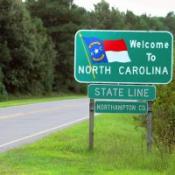 I was 8 years old when I started to contemplate the idea of one day becoming a therapist. This developed into a strong desire that intensified as the years passed and more challenges came my way. By more challenges, I refer to noticing I was different and trying to manage the negative ways the world responded to this. My desire to become a therapist was deeply rooted in my assumption that being a therapist meant I could figure out why I wasn’t normal and perhaps fix it.
I was 8 years old when I started to contemplate the idea of one day becoming a therapist. This developed into a strong desire that intensified as the years passed and more challenges came my way. By more challenges, I refer to noticing I was different and trying to manage the negative ways the world responded to this. My desire to become a therapist was deeply rooted in my assumption that being a therapist meant I could figure out why I wasn’t normal and perhaps fix it.
As I look back, I understand there is no such thing as “normal.” I also recognize that thinking I could “fix” myself was based on misguided notions of what therapists do. I now know, of course, that becoming a therapist doesn’t lead to “fixing” anyone. But the hopeful dreamer child I once was told himself that life would be perfect once he got fixed, and that this would lead to a much happier relationship with the world around him.
Back then, I didn’t understand that the problem didn’t reside within me. You see, I was unavoidably effeminate as a kid. Looking back, I was so fiercely gay that it terrified my conservative Catholic community; experiencing these responses is what gave rise to shame and pain, not my gay fierceness. I was really social, but all of my friends were girls. I loved spending time with my friends doing each other’s hair, decorating the quinta (a narrow passageway with townhouses on each side that face one another) when there was a community event, and playing la cocinita (a less sexualized version of “house”). I liked to tell and listen to stories—okay, I loved gossiping. I also liked playing out stories, as I would do at night when the lights would go out and I would play with the Barbie dolls I’d hid under my bed.
As I write about this part of my childhood, I am inundated with joy and a sense of innocence. But another part of me remembers the fear and shame that made me feel like my gay fierceness was wrong and needed to be corrected. Like when I had to meet with my school’s psychologist, who had me draw my family on a piece of paper over and over again and was alarmed at the consistent depiction of a family without a male figure. I grew up without a father, a dog, or brothers and sisters, but my psychologist, named Glenda, was not concerned about the absence of these characters from my illustrations. Rather, Glenda concluded that being bullied by other boys and leaving out a male stick figure (representing myself) in my family drawings meant I was gay and therefore needed to be treated by a professional.
I wondered why Glenda didn’t see it appropriate to treat the boys who spent day and night teasing me about the tone of my voice and the way I walked. I knew there was something fundamentally wrong with all of this and I refused to participate. Although I knew there was a serious issue with this whole setup, I concluded my experience was similar to refusing to complete my math homework; I was being “bad” or, as they say these days, “noncompliant.” At the time, I didn’t understand that Glenda’s assessment was a violent attack to my person.
Twenty-two years later, I am a fully licensed, certified sex therapist and trained narrative therapist. I am able to see the problem for what it is and locate it where it’s always been—and that is not within me. I am capable of naming the problem more accurately: ignorance, hatred, fear of differentness. For much of my life, I just wanted my story to mean more than shame, to not have to apologize for not being heteronormative. But what I wanted above all was to be free of the way others made me feel by the way they treated me. I didn’t necessarily want to feel affirmed, but I also didn’t want to feel ostracized.
As a narrative therapist, I’ve been able to see and tell my story from several different angles, some of which I hadn’t previously been aware of. Let’s make one thing very clear: I’m no longer interested in figuring out myself, the people I work with in therapy, nor anyone else, for that matter. Because of that, I am liberated.
I wish Glenda had fought for justice. I wish Glenda went to my classroom and educated us all about respecting and accepting differences. I wish Glenda had been able to see that the problem affecting me had nothing to do with me, and that it lived in her office, in my classroom, in the cafeteria, in my neighborhood, in our community, in our media, in our culture. If all Glenda had been able to do was see this, she would have helped, but she didn’t.
I recognize that living my story may not have been as difficult and traumatizing as some people’s experiences. I had a family who perhaps didn’t celebrate my queerness, but definitely tolerated it—I know, not great, but it did and does mean something to me. I also had some friends who were genuinely curious about me and asked questions, which offered me an opportunity to have agency to tell my story on my own terms. Having been a teenager as recently as 2006, I likely had it somewhat easier than young gay people in previous generations. I also had many other privileges that protected me—I was not homeless, had a bed to sleep on, and didn’t experience abuse at home. Nevertheless, the hardships I experienced left invisible scars that frequently remind me of the pain I was forced to learn to live with.
I am writing about my experience here because I want to encourage therapists to respond to LGBTQ+ people more compassionately and appropriately than Glenda responded to me. Drop the agenda. Each LGBTQ+ person has a unique narrative. Even if you went to school for seven or more years, your expertise can’t determine what’s right for a person seeking your help.
All I got from all those psychological tests Glenda administered was shame, anger, and a terrible feeling I can only describe as confusion. Those drawings meant nothing.
I wish Glenda had fought for justice. I wish Glenda went to my classroom and educated us all about respecting and accepting differences. I wish Glenda had been able to see that the problem affecting me had nothing to do with me, and that it lived in her office, in my classroom, in the cafeteria, in my neighborhood, in our community, in our media, in our culture. If all Glenda had been able to do was see this, she would have helped, but she didn’t.
Please don’t assume you know how to help an LGBTQ+ person. Instead, ask how you can help. Please don’t say you are “LGBTQ+ affirmative”—I get the sentiment and the positive intention behind it, but this statement can and is often misused or misinterpreted, and truthfully, many LGBTQ+ people aren’t looking for affirmation by their therapist.
When you put a sticker on your door that says “safe zone,” please know what that means. Are you willing to put down your textbook or manual, be present for that person sitting across from you, and help them based on what they tell you they need? Are you willing to consider that the “help” you may be offering is based on something you read that may have been authored by a cisgender, middle-aged white male?
Don’t be another Glenda. Instead, listen, advocate, and educate. When a LGBTQ+ person comes to you for help, work with and for them.
© Copyright 2016 GoodTherapy.org. All rights reserved.
The preceding article was solely written by the author named above. Any views and opinions expressed are not necessarily shared by GoodTherapy.org. Questions or concerns about the preceding article can be directed to the author or posted as a comment below.

 Transforming Vicarious Trauma in the LGBTQ+ Community
Transforming Vicarious Trauma in the LGBTQ+ Community 'Love Is Love': Finding Acceptance in Unexpected Places
'Love Is Love': Finding Acceptance in Unexpected Places What Does It Mean for a Transgender Person to Transition?
What Does It Mean for a Transgender Person to Transition?